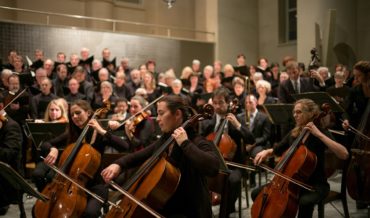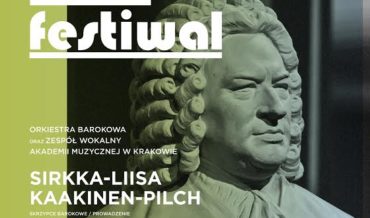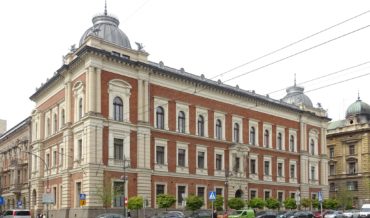Contents
- 1 Key Facts
- 2 Early Life and Musical Education
- 3 Professional Career and European Tours
- 4 Return to Kraków and Institutional Leadership
- 5 Educational Legacy and University Development
- 6 Personal Characteristics and Professional Approach
- 7 Impact on Kraków's Cultural Development
- 8 Historical Context and Significance
Key Facts
• Born in Bochnia in 1855, died in Kraków in 1928 – lived 73 years dedicated to music
• Polish musician, teacher, and organizer who shaped Kraków's musical landscape
• Studied at the University of Music and Performing Arts in Vienna (1874) after initial training in Kraków
• Artistic director of Musical Society "Muza" from 1886, transforming it into a premier cultural institution
• Founded and led the transformation of the Musical Society school into a full University of Music
• Served as headmaster of the music university, implementing crucial educational reforms
• Achieved remarkable growth – 613 students graduated in 1924 under his leadership
• Conducted European concert tours before dedicating his career to Kraków's musical development
Wiktor Barabasz was a Polish musician, teacher and organizer of music events in Kraków who played a pivotal role in shaping the city's musical and educational landscape during the late 19th and early 20th centuries. Born in the historic town of Bochnia in 1855 and passing away in Kraków in 1928, Barabasz dedicated over five decades of his life to advancing musical education and performance in the cultural heart of Poland.
Early Life and Musical Education
Formation in Kraków and Bochnia
Wiktor Barabasz's musical journey began in his hometown of Bochnia, a medieval town known for its ancient Bochnia salt mine and rich cultural traditions located just east of Kraków. His early exposure to music in this culturally vibrant region of the Małopolska region (Lesser Poland) provided the foundation for what would become a distinguished career in musical education and performance.
Training at Musical Society "Muza"
Barabasz's formal musical education commenced when he began learning to play the piano at the prestigious Musical Society "Muza" (Towarzystwo Muzyczne "Muza") in Kraków. This institution, established as one of the primary centers for musical education in the city during the 19th century, provided him with comprehensive training in piano performance and music theory. The Musical Society "Muza" was instrumental in nurturing many of the region's most talented musicians during this period of cultural renaissance in partitioned Poland.
Advanced Studies in Vienna
Recognizing his exceptional talent and potential, in 1874 Barabasz continued his studies at the University of Music and Performing Arts in Vienna (Universität für Musik und darstellende Kunst Wien). This move to the Austrian capital represented a significant step in his musical development, as Vienna was then considered one of Europe's most important centers for musical education and culture. The Habsburg capital offered access to world-class instructors, cutting-edge pedagogical methods, and exposure to the latest developments in European classical music.
During his time in Vienna, Barabasz would have been immersed in the rich musical traditions of the Austrian Empire, studying under professors who were themselves products of the great Viennese musical tradition. This experience abroad not only refined his technical skills but also exposed him to international standards of musical excellence and modern approaches to music education that he would later implement in Kraków.
Professional Career and European Tours
Concert Performance Period
After completing his studies in Vienna, Barabasz embarked on several concert tours around Europe, establishing himself as an accomplished pianist and gaining valuable experience in international musical circles. These tours allowed him to perform in major European cultural centers, broadening his artistic perspective and building a reputation that would later serve him well in his organizational and educational roles.
The experience of performing across Europe during the 1870s and early 1880s was invaluable, as it exposed Barabasz to different musical traditions, performance practices, and audience expectations. This international exposure would prove crucial when he later took on leadership roles in Kraków's musical institutions, bringing a cosmopolitan perspective to the city's musical life.
Return to Kraków and Institutional Leadership
Early Work with Choirs
After his European tours, Barabasz returned to Kraków with extensive experience and a clear vision for advancing the city's musical culture. He immediately began leading choirs and organizing concerts in the city's Old Town, demonstrating the organizational skills and artistic leadership that would define his career. His work with choral music was particularly significant, as choral singing held special importance in Polish cultural life during the period of partitions (1795-1918), serving both artistic and patriotic functions as a form of cultural resistance.
Transformation of Musical Society "Muza"
The most significant phase of Barabasz's career began in 1886 when he became the artistic director of the Musical Society "Muza". This appointment marked the beginning of a transformative period for the institution and, by extension, for Kraków's historical development. Under his leadership, the Musical Society underwent comprehensive reforms that elevated its status and impact throughout the Austrian partition of Poland.
Organizational Reforms
As artistic director, Barabasz reorganized the institution's choir, applying the advanced pedagogical methods he had learned in Vienna and the artistic insights gained during his European tours. He focused on improving vocal technique, expanding the repertoire to include both Polish and European works, and raising performance standards to match those of leading European musical institutions.
Orchestra Development
One of Barabasz's most significant achievements was his work with the Musical Society's orchestra. He expanded and developed the symphony orchestra, transforming it from a modest ensemble into a professional-caliber group capable of performing the most demanding works of the classical and romantic repertoires. This expansion involved recruiting talented musicians, implementing rigorous rehearsal schedules, and introducing systematic training programs based on Viennese conservatory methods.
Concert Programming and Public Engagement
Understanding the importance of regular public engagement, Barabasz established a consistent concert schedule, creating a reliable cultural offering for Kraków's residents. His programming was both ambitious and accessible, featuring classical masterworks, contemporary compositions, and works by Polish composers including Chopin, Moniuszko, and other representatives of Polish national music. This approach made the concerts extremely popular with audiences and established the Musical Society as a cornerstone of the city's cultural life.
The success of these concerts contributed significantly to the cultural renaissance that Kraków experienced during the late 19th century, helping to establish the city as a major center for musical performance and education in the Polish territories. His work laid foundations that would later influence the city's cultural festivals and ongoing musical traditions.
Educational Legacy and University Development
Transformation into University of Music
One of Barabasz's most enduring contributions was his role in the transformation of the Musical Society's school into a comprehensive music conservatory. This institutional evolution represented a major advancement in musical education in Poland, creating an institution capable of training professional musicians to international standards comparable to conservatories in Vienna, Berlin, and Paris. The school was located in Kraków's university quarter, placing it alongside other prestigious educational institutions including the renowned Jagiellonian University and the Academy of Fine Arts.
Leadership as Headmaster
When the school achieved higher educational status, Wiktor Barabasz became its principal teacher and later headmaster, positions that allowed him to implement his educational philosophy and reform agenda. As headmaster, he was responsible for curriculum development, faculty recruitment, and establishing the academic standards that would guide the institution's operations for decades to come.
Educational Reforms
Following his appointment as headmaster, Barabasz implemented several crucial educational reforms that transformed the institution into a highly respected conservatory. Based on contemporary educational practices in Austrian music schools, these reforms included:
- Standardization of curriculum following European conservatory models
- Introduction of comprehensive examination systems for student assessment
- Expansion of course offerings covering practical performance, music theory, composition, and pedagogy
- Enhancement of faculty qualifications through recruitment of Vienna-trained instructors
- Improvement of facilities and resources including practice rooms and musical instruments
Remarkable Growth and Success
The success of Barabasz's educational leadership was dramatically demonstrated by the institution's growth under his direction. By 1924, the conservatory had achieved remarkable success with 613 students graduating in that year alone. This figure represents not only the quantitative success of the institution but also its qualitative impact on musical education in Poland during the interwar period.
The 613 graduates of 1924 would go on to become teachers, performers, composers, and music administrators throughout Poland and beyond, multiplying Barabasz's influence on Polish musical culture. Many of these graduates established their own schools, orchestras, and musical societies, creating a network of Barabasz-influenced institutions across the restored Polish Republic.
Personal Characteristics and Professional Approach
Contemporary Assessment
The most insightful contemporary assessment of Barabasz's character and abilities comes from music historian Anna Woźniakowska, who documented his career and described him as an extremely hard-working person with outstanding organizing and musical talent. This characterization captures the dual nature of his contributions: exceptional musical abilities combined with remarkable organizational and administrative skills.
Work Ethic and Dedication
Woźniakowska's description of Barabasz as "extremely hard-working" reflects the demanding nature of his various roles and the extraordinary energy he devoted to each responsibility. Managing a major cultural institution, conducting musical ensembles, teaching students, and serving as a conservatory administrator required exceptional dedication and time management skills throughout his four-decade career.
Organizational Talent
The reference to his "outstanding organizing talent" highlights perhaps Barabasz's most distinctive quality. His ability to coordinate complex musical and educational projects, manage large institutions, and inspire both students and colleagues was evidently exceptional. This organizational talent enabled him to transform the Musical Society from a local cultural organization into an institution of national significance.
Musical Excellence
The acknowledgment of his "outstanding musical talent" confirms that Barabasz's administrative and organizational success was built upon a foundation of genuine musical excellence. His credibility as a leader in musical education stemmed from his own achievements as a Vienna-trained pianist and his deep understanding of European musical traditions.
Impact on Kraków's Cultural Development
Institutional Legacy
Barabasz's work contributed significantly to establishing Kraków as a major center for musical education and performance in Central Europe. The institutions he developed became models for similar organizations throughout the Polish territories and influenced the development of musical education in the restored Polish state after 1918. His efforts complemented the work of other major cultural institutions, including the National Museum, in establishing Kraków's cultural prominence.
Cultural Continuity During Partition Period
By creating strong educational and performance institutions, Barabasz helped ensure the continuity and development of Polish musical culture during the period of partitions (1795-1918). His work provided a foundation for preserving Polish musical traditions while exposing Polish musicians to the broader European classical tradition, creating a synthesis that would characterize Polish musical life in the 20th century.
Educational Impact and National Influence
The thousands of musicians trained under Barabasz's direction over his decades of leadership carried his educational philosophy and musical standards throughout Poland and the broader region. The 613 graduates of 1924 represent just one year's contribution to Polish musical life, demonstrating the scale and scope of his long-term impact on Polish cultural development. His contributions place him among the famous Polish figures who shaped the nation's cultural identity.
Historical Context and Significance
Barabasz's career unfolded during a crucial period in Polish history, when the country remained partitioned among foreign powers but experienced a remarkable cultural renaissance known as Young Poland. His work in Kraków, the former royal capital and continuing cultural heart of Poland, placed him at the center of efforts to maintain and develop Polish cultural identity through music and education.
His success in building world-class musical institutions in Kraków contributed to the city's role as a center of Polish cultural resistance and renewal, helping to prepare the cultural infrastructure for the country's eventual political independence in 1918. The musicians he trained and the institutions he established provided crucial foundations for Poland's cultural development throughout the 20th century.
The Musical Society "Muza" and its associated conservatory, under Barabasz's leadership, became integral to Kraków's identity as the cultural capital of Poland, a reputation that continues to this day through institutions like the Kraków Academy of Music and the modern Philharmonic, which traces its educational lineage to the foundations established during Barabasz's era. The city's ongoing musical heritage, including diverse genres like jazz music in Kraków, owes much to the institutional foundations he created.
Wiktor Barabasz died in Kraków in 1928, just ten years after witnessing Poland's restoration to independence. He had devoted over four decades to the musical and educational life of the city, leaving behind institutions, educational methods, and musical standards that continued to influence Polish culture throughout the 20th century. His legacy represents one of the most significant contributions to Polish musical education and cultural development during the critical period of national revival, with the symbolic Wawel Castle bearing witness to his transformative work in the royal city.


